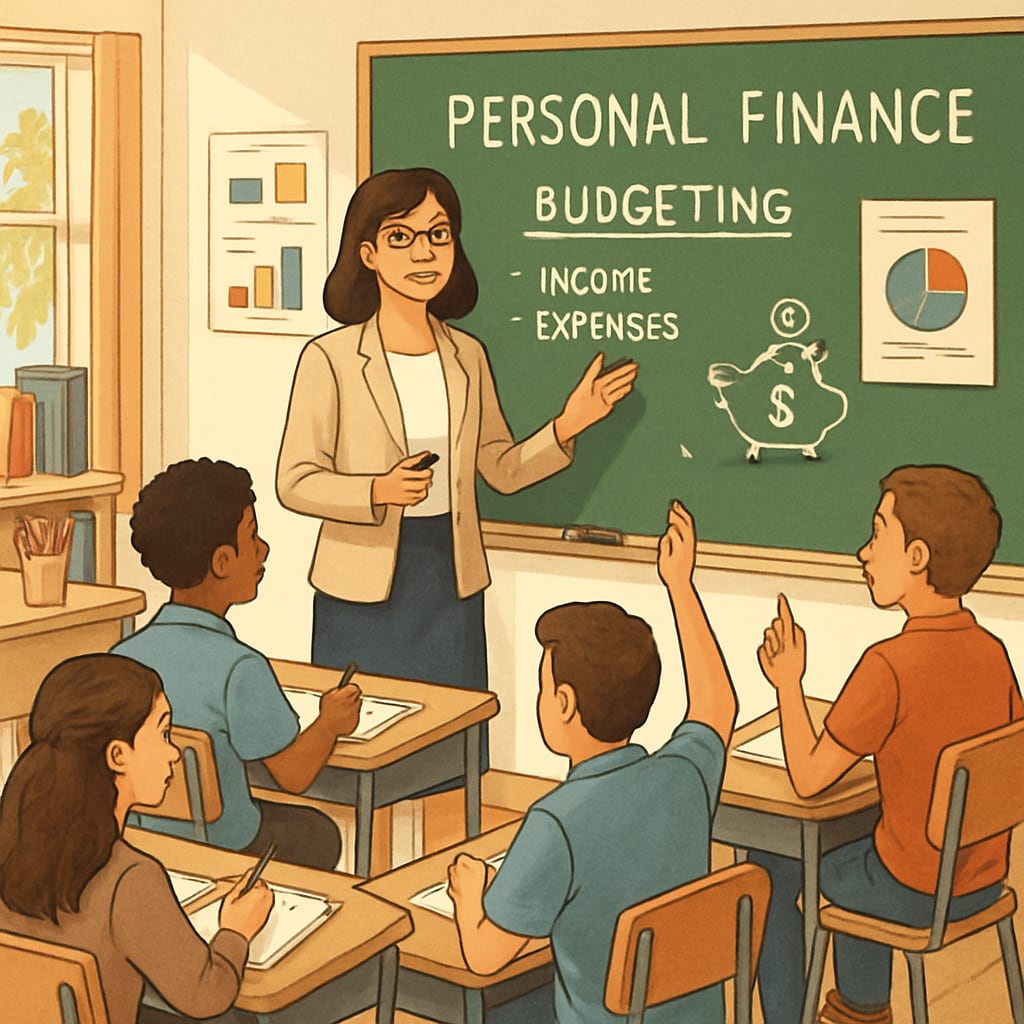Although K12 education aims to prepare students for life, it often fails to teach practical life skills like financial literacy and time management. These vital competencies are critical for navigating adulthood, yet they are frequently overlooked in favor of academic subjects. By incorporating them into core school curricula, educators can better equip students to handle real-world challenges and foster long-term success.
Why Financial Literacy Should Be a Core Subject
Financial literacy—the ability to understand and effectively manage personal finances—is a cornerstone of adult life. However, many high school graduates lack even basic knowledge of budgeting, saving, or understanding credit. This knowledge gap often leads to financial struggles, such as mounting debt or insufficient savings for emergencies.
Integrating financial education into K12 curricula can:
- Teach students how to create and stick to budgets.
- Help them understand loans, interest rates, and credit scores.
- Provide insights on long-term financial planning, including retirement savings.
For example, according to a study by CNBC, students who receive financial education are more likely to save money, invest wisely, and avoid high levels of debt. These skills not only reduce financial stress but also contribute to overall economic stability.

The Critical Role of Time Management Skills
Time is a finite resource, and learning to manage it effectively is crucial for success in both personal and professional life. Students often struggle to prioritize tasks, meet deadlines, or balance academic responsibilities with extracurricular activities. Unfortunately, these skills are not explicitly taught in most schools.
Including time management skills in the curriculum can:
- Improve students’ ability to set realistic goals and prioritize tasks.
- Help them avoid procrastination and reduce stress.
- Prepare them for the time demands of college and the workplace.
For example, teaching students to use tools like planners, time-blocking techniques, or apps can significantly enhance their productivity. As noted by Psychology Today, effective time management improves focus and allows individuals to achieve more in less time, leading to a healthier work-life balance.

How Schools Can Implement These Skills
Introducing financial literacy and time management into K12 education doesn’t have to disrupt existing curricula. Here are a few practical strategies:
- Offer standalone courses or integrate these topics into subjects like math, economics, or social studies.
- Use real-life scenarios and interactive tools, such as budgeting software or time-tracking apps, to engage students.
- Invite professionals to conduct workshops that provide hands-on lessons and relatable experiences.
By adopting these approaches, schools can ensure that students not only graduate with academic knowledge but also with the skills needed to thrive in the real world.
In conclusion, adding financial literacy and time management education to school curricula is an investment in students’ futures. These skills are as essential as algebra or history, yet their absence leaves graduates unprepared for life’s practical demands. Education should be about more than just knowledge—it should empower students with the tools they need to succeed in all aspects of life.


